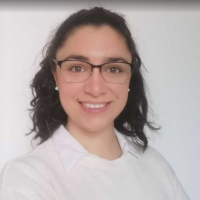
Common Mistakes with Prepositions (and How to Fix Them!)
Prepositions are small words with BIG responsibilities! They show relationships between words—like direction, time, place, cause, or comparison. But even advanced learners make mistakes with them, especially when translating directly from their first language.
Some of the most common mistakes:
- "I’m good
incooking." => Correct: "I’m good at cooking."
Use good at to describe a skill or ability.
- "She depends
ofher parents." => Correct: "She depends on her parents."
Always say depend on someone or something.
- "I arrived
tothe airport late." => Correct: "I arrived at the airport late."
Use arrive at for specific places (airport, station, hotel) and arrive in for larger areas (cities, countries).
- "María is married
witha lawyer." => Correct: "María is married to a lawyer."
Say married to when talking about who someone is married to.
- "He was angry
againstme." => Correct: "He was angry with me."
We say angry with a person, angry about something.
- "Let’s discuss
aboutthe problem." => Correct: "Let’s discuss the problem."
The verb discuss is not followed by about. Just say discuss + topic.
How to Avoid Preposition Errors?
- Don’t translate word-for-word from your first language.
- Learn prepositions as part of a phrase ("interested in," "afraid of," "similar to").
- Use real examples and context to memorize them.
Practice 1: Fix the Prepositions: Read the sentences below and correct the preposition mistakes.
- She’s interested on science fiction books.
- We’re looking forward for the weekend.
- He’s responsible of the final report.
- They laughed of the joke.
- I applied to a job on a tech company.
Practice 2: Write Your Own Sentences. Choose 5 of these prepositions and write your own sentences using them correctly: at, on, for, to, with, in, about, of
Share your sentences on Poligo and get professional feedback.


Comments
Испания: как арендовать жильё и что посмотреть
Мечтаете отдохнуть в живописную Испанию? Я рекомендую полезный источник информации, где доступна детальная информация об вариантах проживания и интересных локациях.
Сайт lkspain.ru предоставляет тщательные рекомендации по подбору идеального жилья в привлекательных городах Испании.
Кроме того вы получите свежие статьи о местных традициях, поездках, еде и деталях тура в эту прекрасную страну.
Рекомендую посетить lkspain.ru во время составления плана своего путешествия!
https://rusmarketstroy.ru/
Купить Супер Тадарайз https://rusmarketstroy.ru/ с доставкой
по Санкт-Петербургу и Москве доступные цены высокое качество производства Индии